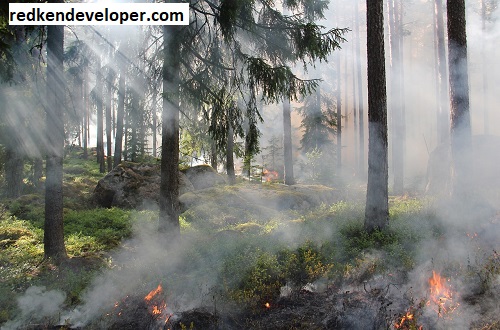Connecticut Plan of Conservation and Development Request for Proposal: A Step-by-Step Guide
Plans Of Conservation:
Plans Of Conservation updating, and preparing the Plan of Conservation and Development from time to time is the mandate of state law in Connecticut at the municipal level. It gives room for sustainable growth, environmental protection, and efficient land use. It usually involves a plan and the solicitation of an experienced professional consultant or firm in planning.

These consultants form a central factor in municipal momentum and capability as they navigate the maze of land use, conservation, and community planning. One can read below an article on the issue process and response to an RFP for POCDs in Connecticut, outlining the process with key considerations, and an applied FAQ section aimed at responding to common questions in such an RFP.
1. A Plan of Conservation and Development, POCD is:
Plans Of Conservation:
A Plan of Conservation and Development, commonly known as a POCD, is a written document articulating the vision, goals, and strategies for community growth and development over an identified period of years. Connecticut, by statute, typically for ten years, every municipality in the state must adopt a POCD and update at least every ten years because of demographic, economic, and environmental changes within that jurisdiction. These are part of community planning:
- Land use: House, commercial,l and industrial space; open spaces/conservation
- Environmental protection: Preservation of natural resources such as wetlands, forests, water bodies, and wildlife habitats.
- Infrastructure planning: development of transportation networks, utilities, and public services for the present and future growth
- Housing: Affordable and diversified housing
- Economic development: Business growth opportunities, jobs and economic vitality.
- Community involvement: Participation of the people residents, business persons, and other stakeholders.
2. Why the Solicitation of Proposals for a POCD?
Plans Of Conservation:
Preparation or updating of POCD is very time-consuming and sometimes cumbersome based on knowledge related to land-use laws, environmental issues, community participation, and technical planning. Very often, the municipality lacks in-house expertise, resources, or sometimes the required time to complete the project. Therefore, many municipalities consider it desirable to float an RFP to attract seasoned planning consultants.
Some of the most convincing reasons for municipalities to issue RFPs for POCDs include:
- Expertise and Objectivity: External consultants working in-house acquire special knowledge and objectivity that ensure that the plan stays current on best practices, legal requirements, and long-term community vision.
- Efficiency: Companies involved in the process of developing POCD rely on experienced companies to hasten the process and implement it more systematically through proven methodologies for data collection and analysis as well as public engagement.
- Regulatory Compliance: Connecticut statute requires that all municipalities follow certain guidelines that will be followed in the writing or updating of their POCD. Consultants can be assured that the product is within the scope of state statutes including the Connecticut General Statutes, as well as the regulations adopted by the Connecticut Department of Economic and Community Development, commonly known as the DECD.
- Community Participation: The hallmark of a POCD is its public engagement in the planning process. Consultants can, thus hold meetings, and workshops, undertake surveys, and more to elicit inputs from citizens and other stakeholders. In this way, the consultant can be certain that a plan reflects the needs and wants of the community.
3. Key Elements of an RFP for a POCD:
Plans Of Conservation:
A new or revised POCD RFP is a formal document that outlines the scope, objectives, timelines, and budget of a given project. The following are some of the common elements that feature in an RFP for a POCD:
3.1 Background Information:
A request for a proposal must include background information about the municipality, including:
- A brief history of the community.
- Current land use patterns and zoning regulations.
- Key demographic, economic, and environmental data.
- Issue/Opportunity to be dealt with under POCD: population growth, economic development, environmental conservation, etc.
- Existing plans and/or previous POCDs, if any

3.2 Scope of Work:
Plans Of Conservation:
- Scope of Work describes what work the consultant will do. The scope is divided into the following:
Data Collection and Analysis: Gathers and analyzes data on land use and trends in population, infrastructural facilities, environmental resources, and economic activities. - Community Consultation: Surveys, focus groups, public meetings, etc must be conducted to provoke the citizens and participants who are interested to join in the planning exercise.
- Preparation of the POCD: Once this concept of formulation of a POCD comes about, analysis and input gathered should precede it. In the draft, it should present options regarding land use, zoning, infrastructure, housing, and conservation.
- Review and Revisions: Present all the draft plans to concerned people of the town council and planning commission for their recommendations and prepare a report.
- Final Presentation: Finalize the final POCD document on recommendation and hand over the same to concerned authorities for final approval.
3.3 Project Time-Line:
A timeline ensures that the project will be completed on time. The following details have to be included in a timeline:
- Date when the project will begin.
- Important milestones of deliverables include such critical activities as gathering data from the public, outreach, review of the draft, and the final submission of the plan.
- Date of completion of the cycle of feedback and revisions to be accomplished.
- Last date of delivery of the finished POCD
3.4 Budget:
Plans Of Conservation:
This stated the budget as what resources will be available to the project essentially means all the money that the municipality is willing to commit toward the consultant, with specific breakdowns for cost allocations like hourly rates, travel expenses, and cost of printing. Consultants are supposed to be able to give a cost proposal in detail based on the scope of work and timeline adopted in the RFP.
3.5 Evaluation Criteria:
Proposals are usually graded based on the predetermined evaluation criteria as shown in the following:
- Experience and Qualifications: The consultant’s experience and proof that he has prepared POCDs, preferably for Connecticut or similar local governments.
- Suggested Methodology: How the consultant will develop and present the project including the community engagement process and the technical elements of the plan.
- Cost: Total cost of the proposal and any breakouts with incurred fees.
- References/Past Projects: Completed projects of the consultant and some other comments from previous clients.
4. Sample RFP for POCD:
Plans Of Conservation:
Town of Springfield – Request for Proposal (RFP) for the Update of the Plan of Conservation and Development (POCD)
Background:
The Town of Springfield is looking for an appropriate planning consultant to partner with in updating its 2025 Plan of Conservation and Development. There is a Town POCD already on the books, adopted in 2015. Thus, it has become one of the policies to update it while making considerations of the changes in population, economy, and other environmental considerations in the Town.

Scope of work:
Plans Of Conservation:
- Public Involvement: There would be public outreach and participation through workshops, surveys, and focus groups with residents and other local organizations on input.
- Research: Review current patterns of land use, demographic trends, environmental resources, and infrastructure.
Comprehensive Plan: Master plan to contain a recommendation on land use and zoning, environmental conservation, and economic development. - Review Process: Draft POCD shall be presented to the Planning and Zoning Commission and Town Council for plan revision.
- Final Adopted Plan: The final POCD adopted by the Town Council